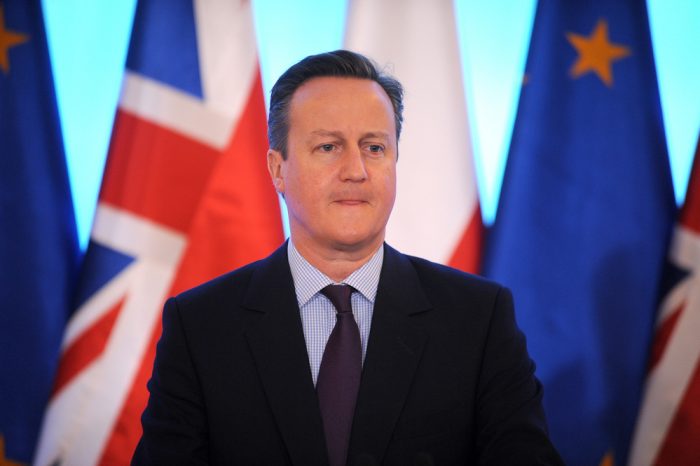The EU – Mr Cameron’s greatest (phoney) acting role
All the world’s a stage, ..And one man in his time plays many parts (As you like it. Shakespeare)
As the ruling élite, particularly our Prime Minister, continue to strut around on the world stage, stage-managing artificial disputes and triumphs, how much is genuine and how much is just acting a part, perhaps many parts or ‘going through the motions’, to deceive us of their real intentions about the European Union (EU)? How can we reliably tell the difference?
We could start with integrity, for example. Does our PM actually believe in anything? Does he have (conservative) values and principles? His track record of destruction, for example, decimating the armed forces, closing working power stations, his railroading of HS2, does not appear consistent with a conservative ethos or compassion. Then there is the obsession with remaining in the European Union (EU) at any price and handing increasing control of our destiny as individuals and a country to unelected, unaccountable bureaucrats in Brussels. Hardly evidence of high principles, but then for great acting, principles could be a handicap rather than a help.
So, leaving aside principles, does our PM have a track record and skills in deception (or acting)? A reasonable place to start looking for an anwer could be to consider his relationship with the former leader of the Liberal Democrats, Nick Clegg, whose trust in the integrity of the Prime Minister appears to have been betrayed. Having worked closely with Mr Cameron as coalition government partners for nearly five years, Mr Clegg found the Conservative Party pouring resources into Lib Dem held constituencies in the last General Election rather than Labour held ones. The result was a wipe-out of his party. With political friends like Mr Cameron, who needs enemies? And how much of it was a deceitful act to keep Mr Clegg and his colleagues off their guard and for how long did it go on?
Election strategies are not planned or implemented overnight. Based upon this and other examples of somewhat disreputable behaviour, (such as the use of induced fear to manipulate us in the General Election) it would be prudent to treat all mainstream politicians, their acolytes and fellow travellers with at least some caution, and the PM with more than most.
Our PM did not have a normal job before going into politics. His early career could be summed up by Rudyard Kipling (in Epitaph to a Dead Statesman) ‘I could not dig: I dared not rob: Therefore I lied to please the mob.’ His time out from politics (as Director of Corporate Affairs) appears to have been in public relations – handling the Press and facilitating make-believe corporate images of Carlton Communications whose main business was in make-believe (film and TV media) products. In such an environment, fiction and fact are somewhat interchangeable, as was said succinctly in the film The Man Who Shot Liberty Valance: ‘This is the West, when the legend becomes fact, print the legend.’ Such a background would be eminently suited to a young, ambitious career politician, as Winston Churchill observed of a PPC (prospective Parliamentary Candidate) ‘He’s asked to stand, he wants to sit and he is expected to lie’.
Mr Cameron certainly appears to be a consummate politician; at ease with power and at home in the company of the international ruling élite;. He possesses the accoutrements of the modern successful career politician – namely, being able to outmanoeuvre others, work alliances, use people and the weapon of fear to gain advantages and to use spin and undeliverable ‘promises’ to manipulate and conceal the true situation.
There are naturally various downsides to this political acumen, not least a worsening of actual governing competence, changing priorities to the spurious (spin, sound bites and appearances etc.), undermining democratic transparency and accountability, and a general deterioration in ethical standards and integrity. Some effects are subtle yet potentially significant.
Spin negates the need to deliver actual results and restricts the ability to analyse and to think outside the ‘spin-box’; sloppy, vague and confusing language undermines clear, logical thought and rational ideas. George Orwell in Politics and the English Language wrote about political language being used to deceive, to conceal the true horror and give substance to pure wind. He also pointed out its limiting or negative effect on ideas ‘English …… becomes ugly and inaccurate because our thoughts are foolish, but the slovenliness of our language makes it easier for us to have foolish thoughts.’ This is readily apparent in the superficiality of supposedly important parliamentary debates and policy documents where high standards of observation and analysis are largely absent.
The consequence is self-evidently poorer performance by the government and a failure to assess properly any negative impacts of policies and thus to introduce timely mitigations. Less obviously, a modern advanced society, especially in the Internet age, needs a high level of trust in order to function efficiently and create future per capita wealth. Consequently, setting a poor example at the top must filter through negatively into the performance of the economy and society’s mores.
Yet, fortunately, there are pointers in the forthcoming referendum on EU membership which will enable us to distinguish between the phoney and acting from the real thing. For example: over-acting the part and being too in earnest or emphatic; making unbelievable claims (for example, about EU ‘renegotiations’) or statements that defy logic or available evidence about the EU; endless repetition of known falsehoods about the EU, our relationship with it and life as a free and independent country; telling different stories to different audiences or at different times; all presentation and soundbites, without any actual substance or thoughtful analysis. Although this play-acting sounds impressive at the time, it is almost instantly forgettable.
The greatest triumph in acting is to convince the audience at the time to the extent that they accept the persona of the part, rather than that of the actor; and some actors appear to believe their roles are real. The greatest accomplishment of Mr Cameron in deception (and acting), and PR triumph would be to convince us, the electorate, and win the EU referendum, without his having a genuine belief in the cause, but just through acting or over-acting the part of the ‘statesman’.
And so to paraphrase Shakespeare’s tale of power politics and betrayal, Julius Caesar:
‘Friends, Britons, EU leaders, lend me your ears;
I come to bury UK, not to praise her.
The evil that I do lives after me as PM;
UK’s goodness will be interred with her bones;
So let the end be with the former GB.’






